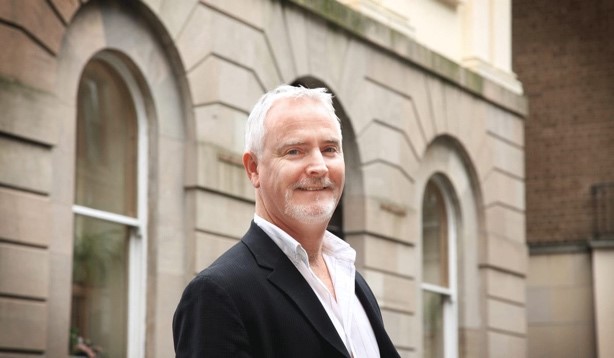
Good cities reward those who walk, looking and reflecting on the paths they take that open an easy relationship with the city and its neighbourhoods. The Italian passeggiata is, of course, as much about meeting friends and family as about using the connecting streets and passageways between one part of the city and another, and such act of walking is liberating, enjoyable and important in the making of place.
Belfast does not, in many neighbourhoods, have that easy, social connectivity. The once easy
cross-city network of minor streets is, in large part, gone. Interface walls, motorways and other
barriers and separation devices are not overtly visible in the commercial city core but continue to define key emblematic neighbourhoods. And the growth of small-scale political tourism manifested in several bus, black-taxi trails and short neighbourhood walks to visit the interface areas and their walls, have potential result, unfortunately, that such walls, as artefacts of conflict, could tend towards permanence.
As one of many post-conflict cities, Belfast, is still emerging from its historical and localised condition of manifested deep-seated sectarianism, where identities and allegiances are linked to a strongly held sense of ownership of territory. Hence, the reluctance to build in void spaces that could help resolve the housing crisis and be model for housing-led regeneration and model of partnering for change with the public sector.
The once daily reality in our small nurture-field city-of-camouflage and the desire for a more-connected city and neighbourhood has creative possibility, where conflict, friction, and collaborative opportunity – the collision and kiss of confluence – as creative act, can influence and impact one upon the other, that, as we know, sparks fly: alight.
The spirit of self-help projects, the confluence of history, cultural continuity, and an urgent need to act is current opportunity for transformative change: for the making of new ground in an emerging
city-form.
Ciarán Mackel,
Belfast School of Architecture and the Built Environment, Ulster University, ARdMackel Architects and
Belfast City Councillor, Geraldine McAteer.
Mackel’s design and research-oriented practice, ARdMackel Architects, has a portfolio of residential, cultural and community projects on which he is collaborating with visual arts practitioners. The practice has gained many design awards for their buildings.
He is also Associate Senior Lecturer in Architecture at Ulster University Belfast School of Architecture and the Built Environment, and is currently writing, teaching design modules and contributing to reviews across the school. He has been visiting critic to ENSA School of Architecture in Nantes and to Plymouth University School of Architecture.
He is a regular contributor to architectural periodicals writing reviews, editorials, and essays to generate discussion on architecture and urbanism. He has also been architect-assessor on several architectural and building competitions, and chair of awards juries.
To receive the link to attend this talk please email: LeicesterGallery@dmu.ac.uk